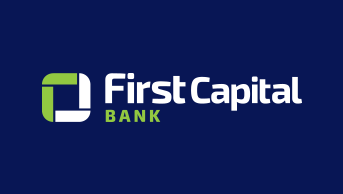Trading Update for the first quarter ended 31 March 2020
Operating Environment
The operating environment continued on the same trend as the fourth quarter of last year, with inflation continuing on an upward trend reaching 676% year on year from 521% in the fourth quarter of 2019. Within the quarter the local currency depreciated from 16 to 25 on the interbank market with parallel market premiums going to near 100%, which has a significant impact on the Bank’s costs base.
On a global scale COVID -19 pandemic affected some of the country’s key markets including Europe and China causing significant disruption. As a result of Covid19 and the lockdowns in many economies global aggregate demand is expected to slow significantly with this also impacting Zimbabwe through reduced exports and constrained diaspora remittances.
In order to manage the spread of the pandemic, the Government ordered a lockdown starting towards end of March and the Bank evoked business continuity plans for critical operations/ processes to enable customer transactions flow with many colleagues working from home.
COVID -19 will impact the business directly and indirectly. Due to the lockdown non funded income for quarter two is expected to decline by c15%, whilst costs are also expected to increase from quarter two on the back of the costs necessary for COVID-19 preventative measures. There will inevitably be an impact on impairment, which is expected to materialise in quarter two onwards, with the full impact to be assessed.
Customer deposits and loans are concentrated in various sectors. Local currency and foreign currency deposits have remained stable since the lockdown period, with the bank settling daily transactions without any issues. The tourism sector has been significantly impacted due to travel restrictions, with this sector contributing 4% of the Bank’s loan book, the impact is expected to be minimal in the event of a default from this sector. Clients constituting 6.5% of the loan book including tourism sector have requested for restructuring of their loan facilities and repayments, with the bank working with these businesses to support them as best we can. We have put in place measures to mitigate credit risk by conducting a complete review of our loan portfolio to ensure that we focus our support and attention on the right sectors and businesses.
Financial Performance Review
The Bank had a strong performance during the first quarter with total income in inflation adjusted terms increasing by 86% from ZWL136m to ZWL253m, whilst in historical cost terms total income increased by 85% from ZWL115m to ZWL213m including one off foreign exchange gains of ZWL20m. The increase is largely due to increase in loan book in prior year quarter four, while the loan book remained stable in quarter one of 2020. Additionally, interest rates and prices increases effected towards end of quarter four of 2019 contributed significantly to the increase. Operating costs on the other hand increased by 20% in inflation adjusted terms from ZWL138m to ZWL166m and in historical cost terms by 14% from ZWL120m to ZWL137m. Profit after tax grew by 100% from a loss of ZWL 58m to a profit of ZWL59m in inflation adjusted terms, while in historical cost terms the increase was 510% from a loss of ZWL10m to a profit of ZWL51m.
Balance sheet growth was driven by ZWL loans which grew by 9% from 620m to ZWL673m whilst ZWL deposits grew by 21% from ZWL886m to ZWL1,073m. Foreign currency loans remained flat at USD6.8m whilst foreign currency deposits declined by 10% from USD55m to USD50m.
On a forward looking basis, the bank will not maintain quarter one performance in the short term largely due to the impact of Covid19.
Total capital adequacy ratio at end of quarter remained flat at 25%, whilst liquidity ratio was 58% compared to previous quarter of 55%.
By Order of the Board
Violet Mutandwa
Company Secretary
15 May 2020
First Capital Bank Quarter One Trading Update

